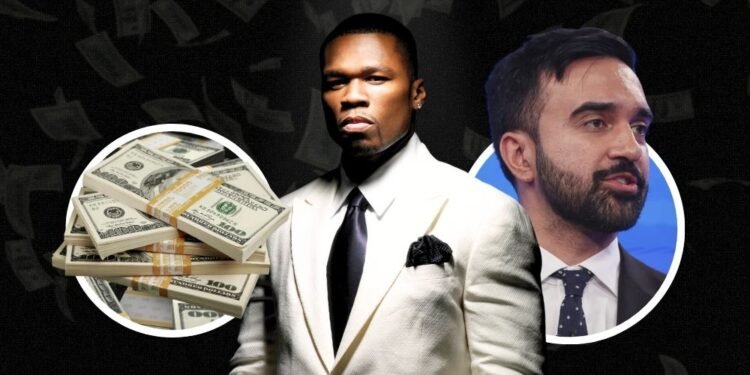The Democratic primary for New York City mayor has propelled Zohran Mamdani, a 33-year-old state assemblyman from Queens, into the political spotlight. His unexpected victory over formidable opponents, including former Governor Andrew Cuomo, marks a pivotal moment in the city’s political landscape.
Backed by progressive figures like Bernie Sanders and Alexandria Ocasio-Cortez, Mamdani’s win signals a growing appetite for bold, left-leaning policies among Democratic voters.
However, it has also ignited significant concern among conservatives who fear his agenda could reshape New York City in ways that threaten its economic vitality.
As a member of the Democratic Socialists of America and the Working Families Party, Mamdani has proposed a series of ambitious policies aimed at addressing economic inequality.
These include a $30 minimum wage by 2030, increased taxes on corporations, and expansive affordable housing initiatives. Additional proposals, such as city-owned grocery stores and an immediate rent freeze for rent-stabilized tenants, aim to alleviate cost-of-living pressures for working-class New Yorkers.
While these ideas resonate with those frustrated by rising costs, they have raised alarms among critics who see them as economically unsustainable.
Conservative critics argue that Mamdani’s policies could transform New York City into a socialist hub, drawing comparisons to cities like London, which some perceive as having suffered from similar progressive shifts.
The fear is that higher corporate taxes could drive businesses out of the city, mirroring the business exodus seen in places like Oakland, California, where aggressive tax and regulatory policies have been linked to economic decline.
A 2023 study by the Manhattan Institute noted that high-tax policies in urban centers often lead to reduced investment and job losses, a concern echoed by Mamdani’s opponents.
They argue that his focus on expanding social services and supporting immigrant communities could strain city resources, potentially leading to higher taxes for residents and a less competitive economic environment.
The backlash against Mamdani has extended beyond policy debates, with cultural figures weighing in. Rapper 50 Cent, a Queens native whose real name is Curtis James Jackson III, made headlines by offering Mamdani $258,750 and a first-class one-way ticket to leave New York City.
This offer, posted on Instagram on June 26, 2025, was a direct response to Mamdani’s comments during a June 11, 2025, appearance on “The Breakfast Club” podcast (The Breakfast Club).
Mamdani outlined his plan to raise corporate taxes and impose a 2% tax increase on individuals earning over $1 million annually, noting that 50 Cent would likely oppose the measure.
50 Cent, with an estimated net worth nearing $1 billion, responded sharply, questioning Mamdani’s background and expressing disdain for his tax plan. He also mentioned informing President Donald Trump about Mamdani’s proposals, reflecting his alignment with conservative economic views.
Mamdani, a Muslim and former rapper with a history of community organizing, has defended his policies as essential for addressing the needs of New York’s working class.
His supporters argue that his proposals tackle systemic inequalities, such as housing unaffordability and wage stagnation, which have long plagued the city.
However, critics contend that his lack of extensive governing experience—highlighted by his thin resume, which includes rapping and an acting cameo—raises questions about his ability to manage a city as complex as New York.
Mamdani’s rise reflects broader tensions in American politics, particularly the divide between progressive and conservative visions for urban governance. His victory is seen by some as a test of whether progressive policies can succeed in a major economic hub like New York City.
Conservatives, however, view it as a warning of potential overreach, with figures like 50 Cent amplifying these concerns through public platforms.
The rapper’s reaction, while symbolic, underscores the high stakes of the debate, as wealthy individuals and businesses weigh their future in a city that may face significant policy shifts.
As the general election approaches, Mamdani’s candidacy will continue to spark debate about New York City’s future. Supporters see his policies as a bold response to entrenched inequalities, while opponents, including high-profile figures like 50 Cent, warn of economic and cultural consequences.
The outcome of this election will have profound implications for the city’s trajectory, determining whether it embraces a progressive overhaul or opts for a more cautious approach to governance.












